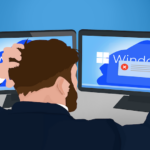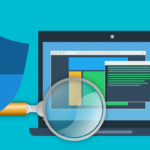Slow machines represent one of the largest sources of work for us.
Perhaps when you purchased your computer, it ran like a champ and quickly did everything you needed. Now … well, not so much. Perhaps it takes forever to boot. Or starting applications is slower than molasses. Or maybe the machine acts sluggish when you try to use it for just about anything.
Regardless of the specifics, the underlying theme is simple: it’s slow. There are many, many reasons that a machine could slow down. Let's list a few of the most common reasons here, along with some advice on what steps to take.
It’s a Slow Machine
An assumption we are making here is that it’s your entire machine that is slow, not just one or two applications. It's common for computers older than a few years old to take minutes to restart, for example. It's common for programs to take 10-20 seconds to load as well.
However, if a specific application (especially games and video editing software) works too slowly, you are better off focusing on that specific application. Perhaps, a part of your computer is underpowered, and a simple upgrade can make a big difference.
Sudden Slowdowns: Malware Comes to Mind
If the slowdown is sudden and severe, the first thing that comes to mind these days is malware. Different types of malware do different things, but one of the symptoms of malware can be a suddenly slow or sluggish system.
Your antivirus tools are your first line of defence. Make sure they’re up to date, and run a full computer scan. We have some recommendations for better antivirus!
Sudden Slowdowns: A Program Run Amok
Very often, the source of a system slowdown can be attributed to a single program on your machine attempting to use all available processing resources. When that happens, other programs (often including Windows itself) cannot respond to your actions as quickly.
This usually happens with web browsers, especially when you have too many tabs open. Our recommendation is to close old tabs. Don't use browser tabs as your "to-do list"! If it doesn't help, close the browser and restart your computer.
Gradual Slowdowns: Impending Hardware Failure
We normally think of most hardware failures as sudden and catastrophic. Sometimes, they’re a little less catastrophic than we think.
For example, if your hard drive is going bad, that may first manifest as a slowdown. The disk drive will try multiple times to read a marginally bad section of the drive before giving up, which takes time. If multiple areas are affected, that time adds up. The system keeps working because the sectors aren’t so bad that they actually fail, but they take additional time to be read because they’re going bad.
Back up, of course. Impending failure can quickly become an actual failure and data loss.
Gradual Slowdowns: Too Much Stuff
One of the most common causes of a system gradually slowing down over time is that it’s being asked to do more and more and it’s trying to run too much software simultaneously.
Generally, folks find themselves in this situation after installing software on their machine that includes a component that always runs. Over time, there’s so much running on the machine even when it’s not in use that when it is in use, there’s not enough computing power left over to run the programs quickly and efficiently.
Examples of software that might get installed over time? Webcam software after getting a webcam, instant messaging programs, Skype, Dropbox, Steam, updater utilities, antivirus tools, and so on. Every once in a while, you should review the list of software running on your machine and question everything you’ve installed. Uninstall everything you don’t really need.
Gradual Slowdowns: Updates
In a sense, this falls into the “too much stuff” category, but applies even if you haven’t made a single change.
It’s commonly understood that systems tend to get bigger over time. That’s more or less the nature of software evolution and our expectations of ever-increasing functionality and support.
Years of updates slowly increase the resource requirements of your operating system and applications. Particularly if your system is already somewhat slow, that increase can be enough to impact your overall performance.
This gets even worse if you haven't used your computer for a while. When you turn it on, the operating system and all the programs start installing updates, which sometimes can make the system unusable for hours!
Conclusion
As you can see, there are many reasons for having your computer slow down. Usually, our recommendation is to replace the computer with something better or at least do an upgrade. Come talk to us if you need help!






